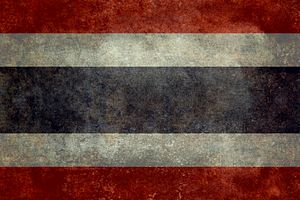Thai politics have taken a circular nature as of late. Per the new interim constitution established in July, the military junta that has ruled the country since its May 22 coup appointed a new National Legislative Assembly (NLA). In return, as many predicted, the NLA has appointed General Prayuth Chan-ocha, the mastermind behind the coup, the country’s new prime minister. Prayuth was elected with 191 yeas, 0 nays and 3 abstentions in the NLA. The NLA is effectively a rubber-stamp legislature designed to make Gen. Prayuth’s ascent appear more legitimate. In reality, Prayuth’s role prior to the NLA appointment was effectively that of prime minister — he was running the day-to-day affairs of the country. Prayuth’s ascension to the post of prime minister comes three months after Thailand’s latest military coup.
Prayuth’s appointment will help him remain influential in Thai politics following his mandatory retirement from the Thai army later this year. Having been formally appointed as prime minister, Prayuth can rule unimpeded until Thailand returns to party-based politics. One of his first actions as prime minister will be to appoint a new cabinet. Under the interim constitution from July, Thai citizens who were formerly involved with political parties are banned from political participation via the NLA or other bodies. The interim constitution demonstrates the extent to which Prayuth and the junta are anxious about allowing Thailand’s political parties any influence over the current state of Thai politics.
According to the Wall Street Journal, Prayuth will formally take on the role of prime minister following the endorsement of Thailand’s king. The Journal notes that “royal approval is largely viewed as a formality and the general already appeared focused on his new job.” Uncertainty looms over the Thai king’s health. King Bhumibol Adulyadej is 86, and details about the Thai royal succession remain ambiguous. The military is largely aligned with the monarchy and is attempting to dismantle former Prime Minister Thaksin Shinawatra’s base of support (known as the “red shirts”). Thaksin was overthrown in a coup in 2006; his sister, Yingluck Shinawatra was serving as prime minster before being removed by Thailand’s court earlier this year.
The Thai government under the junta remains focused on revitalizing Thailand’s economy while keeping the population and political activists under check. Even prior to the military coup, Thailand’s economy was underperforming and investment inflows were on a downward spiral. The Thai government has further revised the country’s “upper-end growth forecast for this year to 2 percent from 2.5 percent.”
The junta has promised the formation of a new government and democratic elections by the end of 2015 under a three-phase roadmap. In the meantime, Prayuth will attempt to fix Thailand’s economy and rule with as little controversy as possible — a tall order in Thai politics.

































